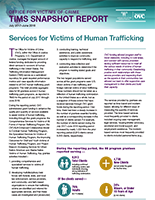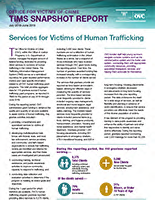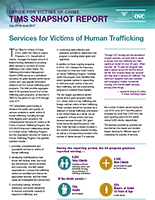New Division Created in the Office for Victims of Crime to Combat Human Trafficking
See the YouTube Terms of Service and Google Privacy Policy
The Office for Victims of Crime is the largest federal funder of efforts to combat domestic human trafficking. Combating human trafficking is a top priority for the Administration, for the Department of Justice, and for the Office for Victims of Crime.
Watch this video message from Office for Victims of Crime Director Jessica E. Hart about a recent consolidation of law enforcement, juvenile justice, and...





